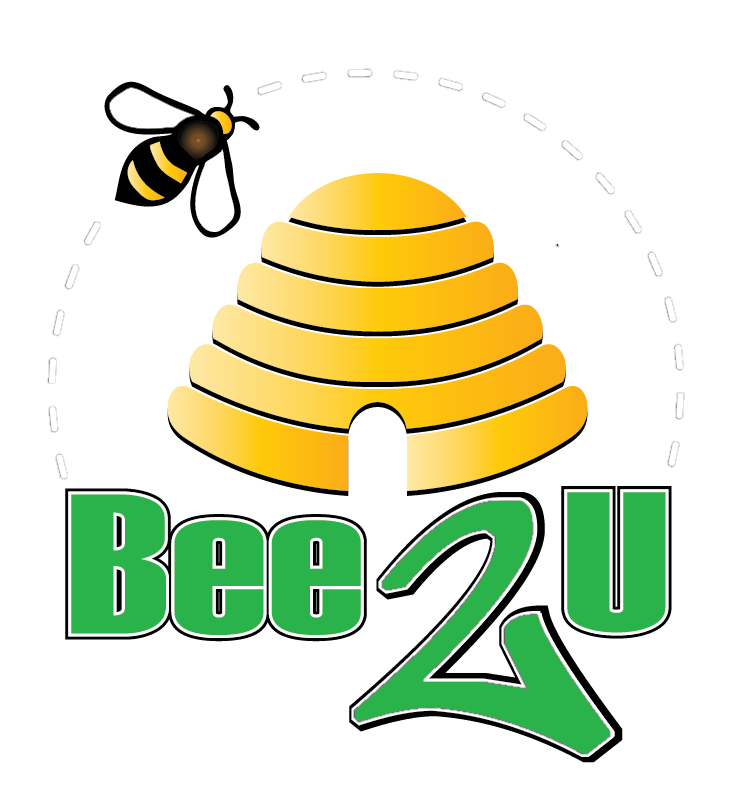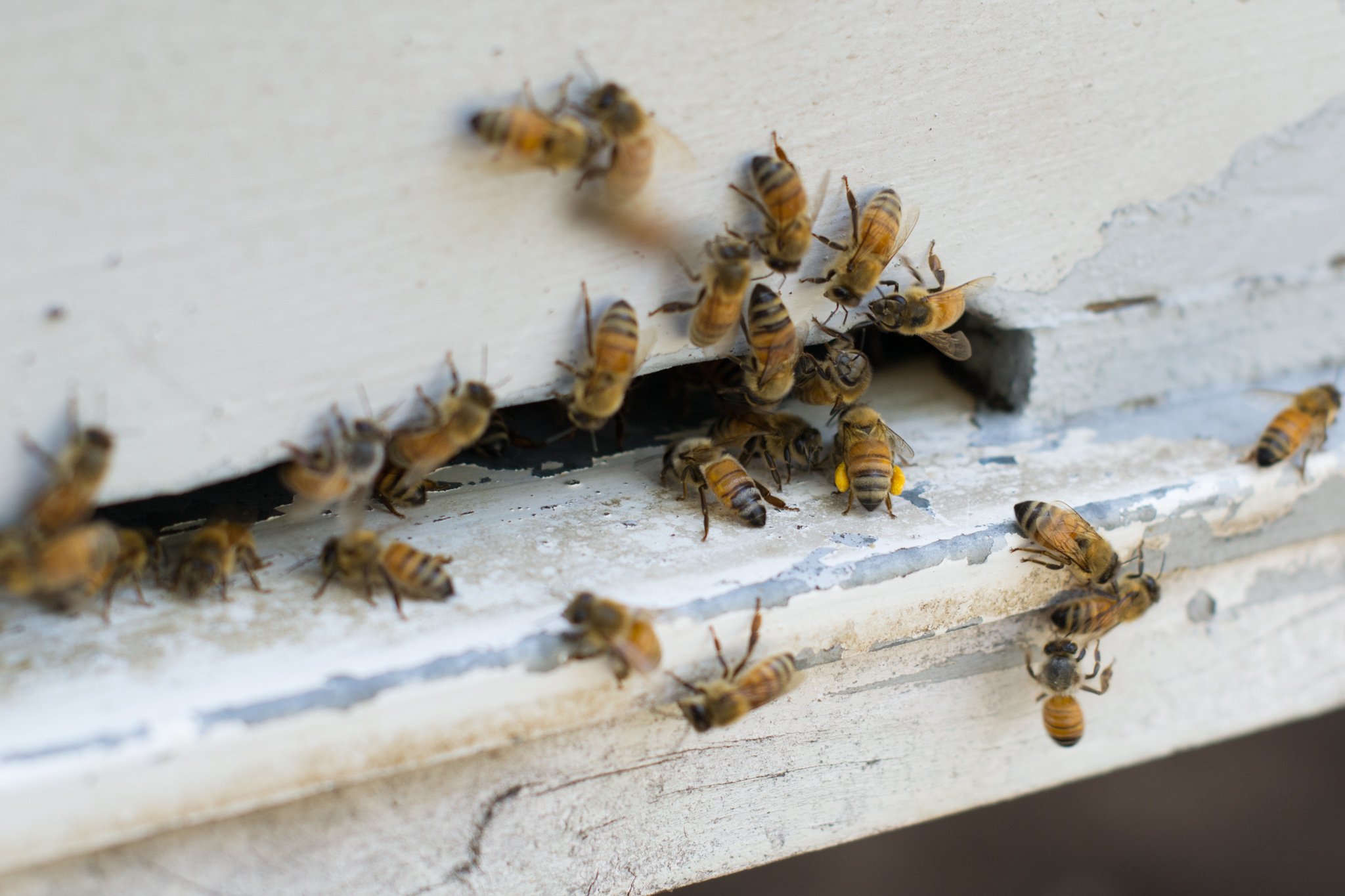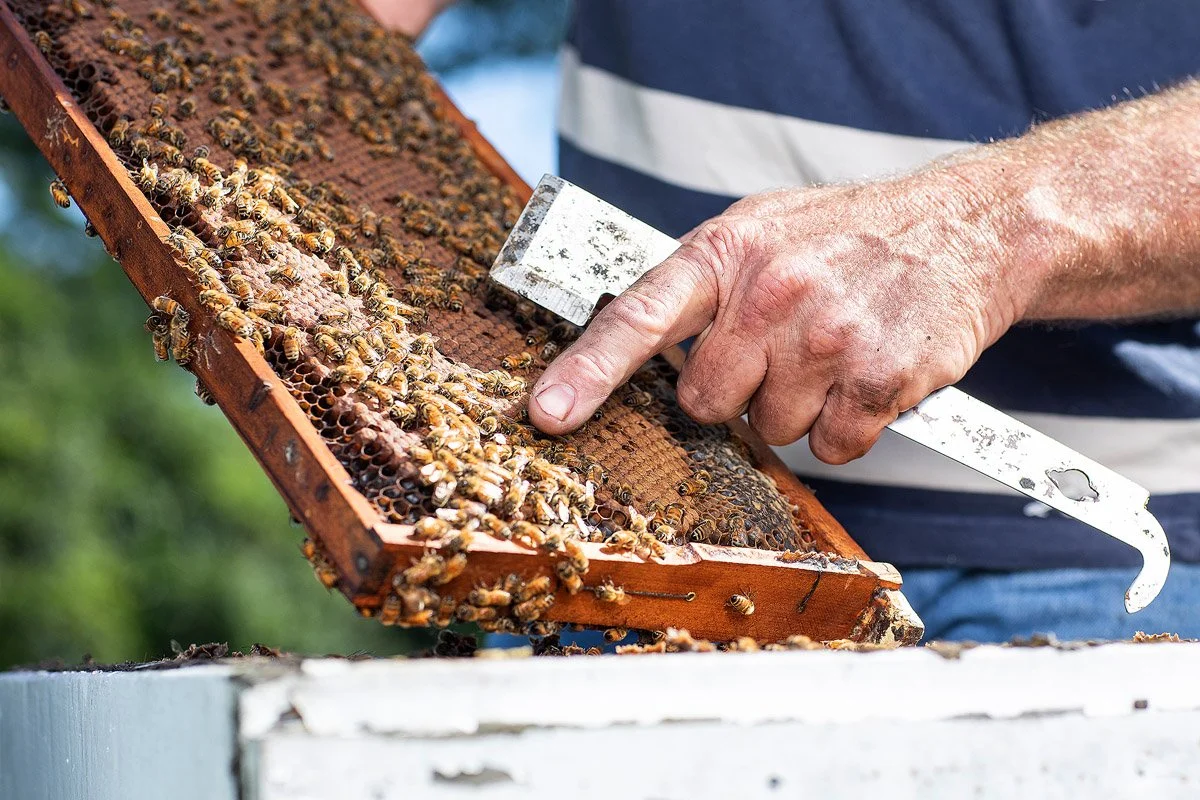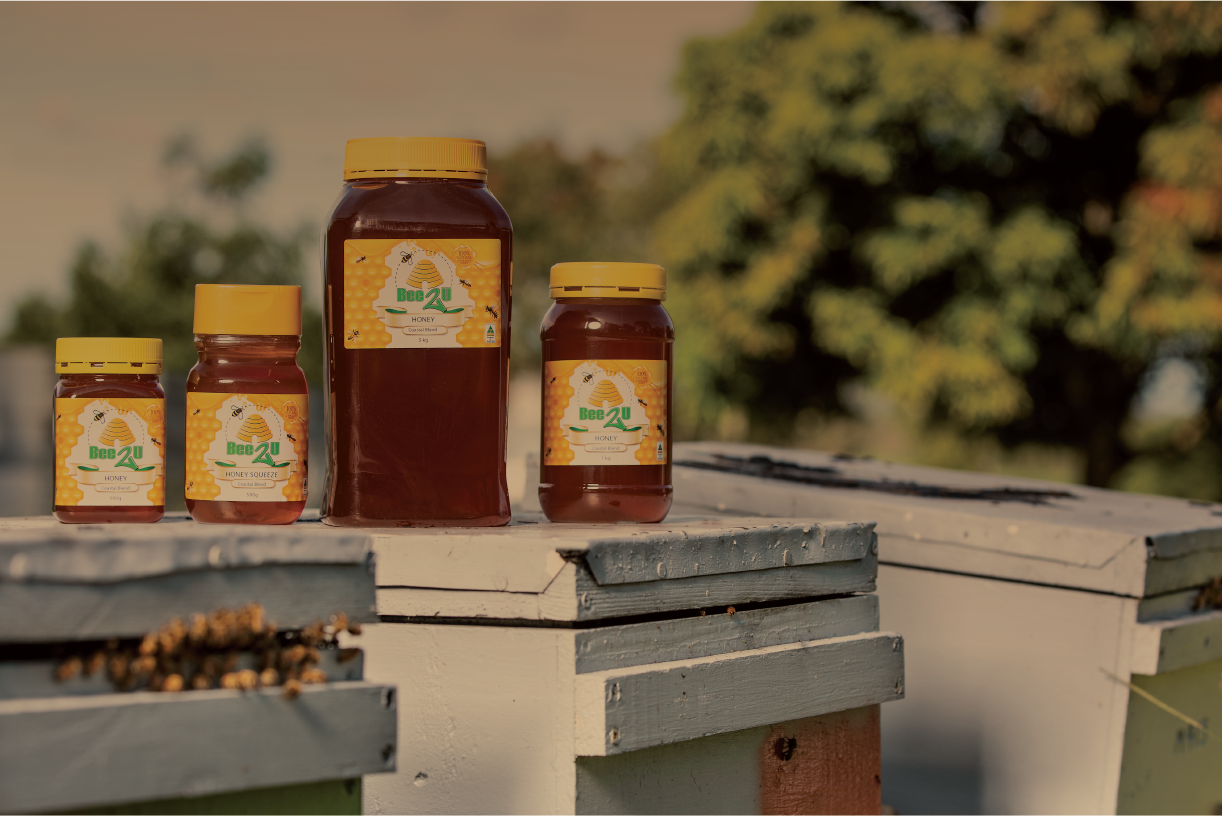
Taste the
Quality
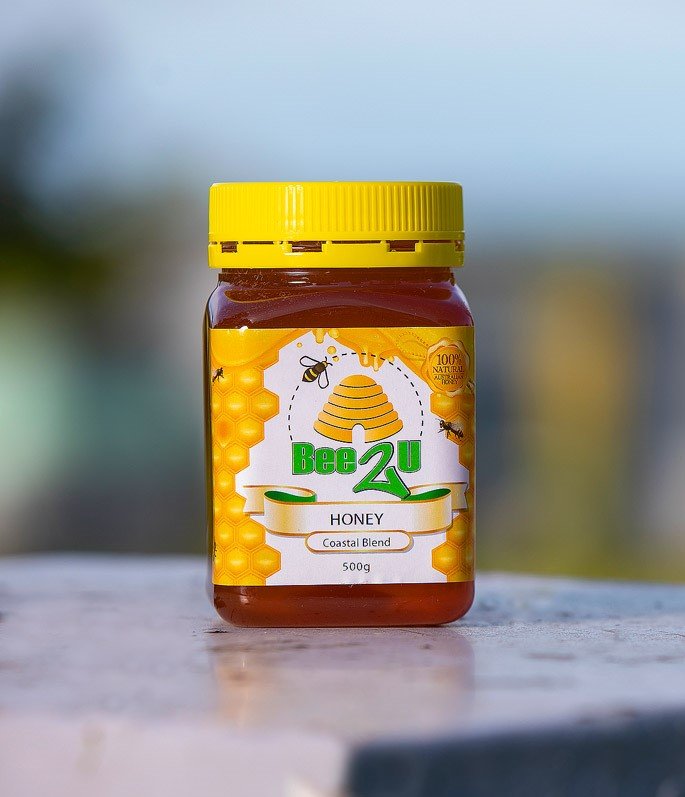
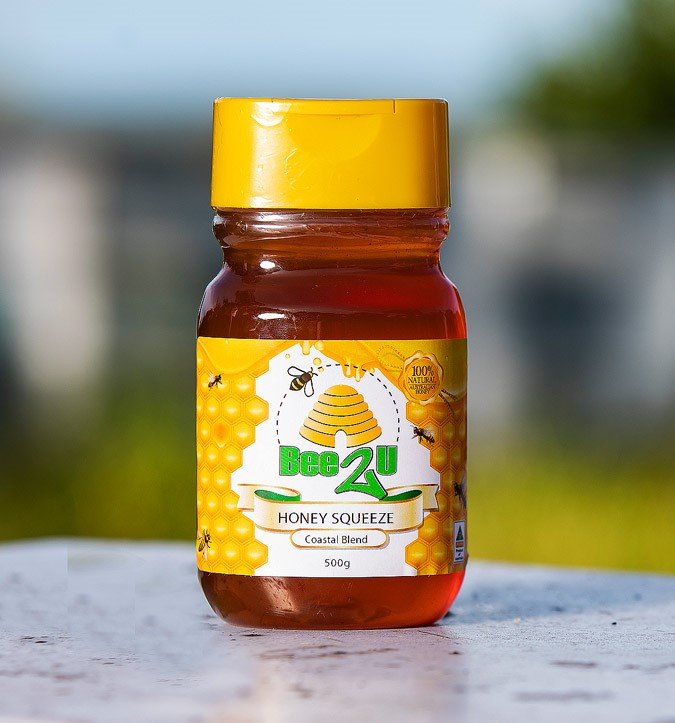
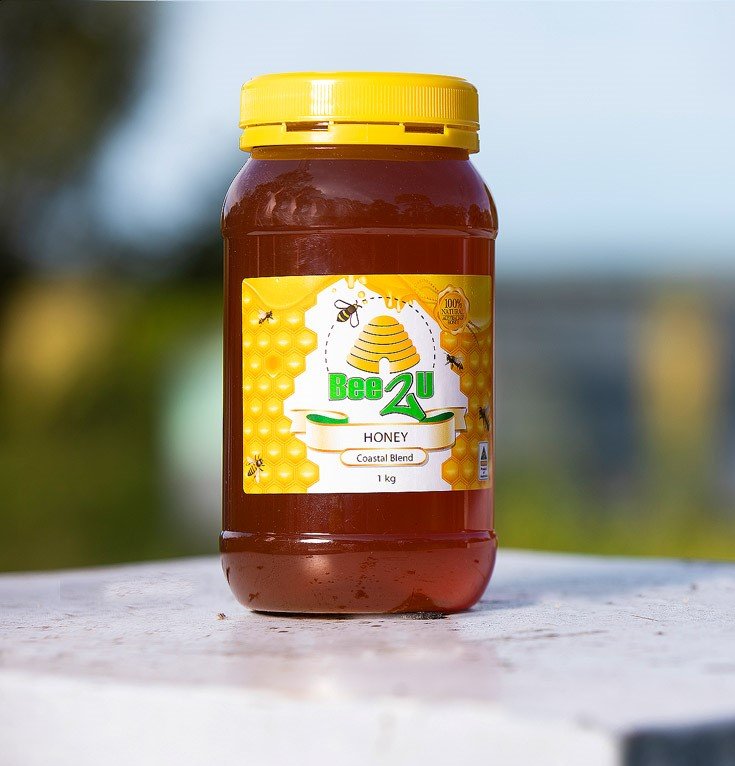
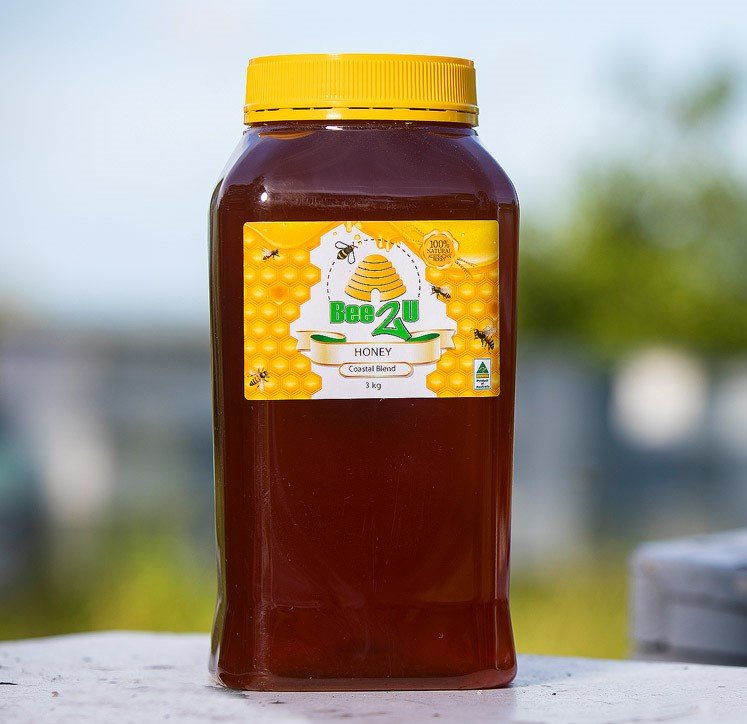
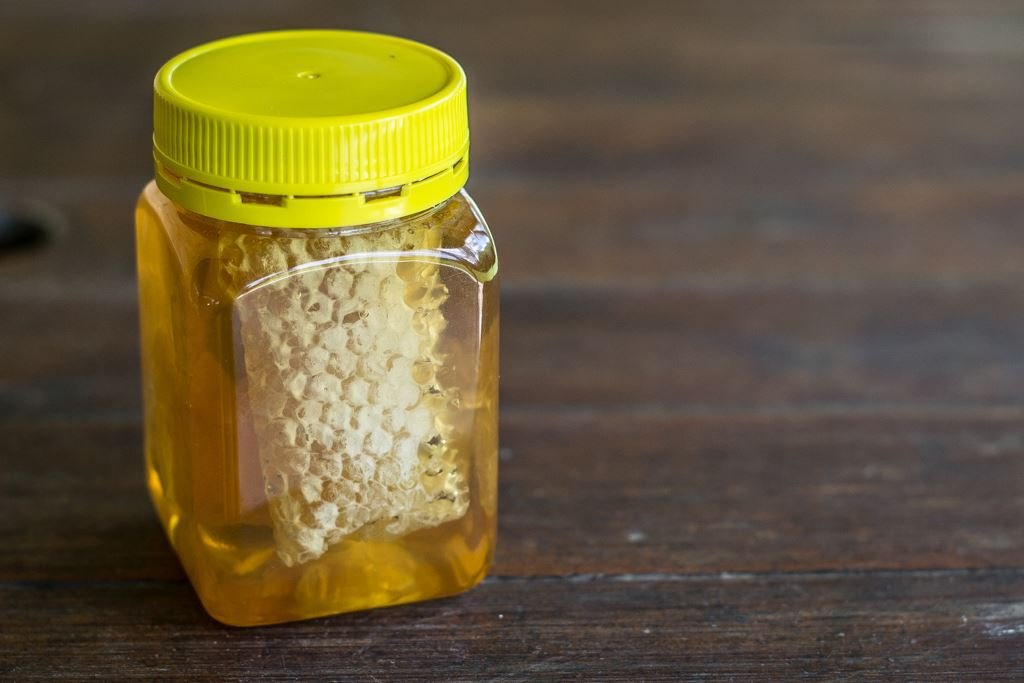
Honey
Honey is a pure, natural product gathered by some of nature’s hardest workers - honeybees. While all honeys are sweet, individual varieties have their own unique aroma and flavour, dependent on the specific flowers on which the bees forage. Australia’s pristine environment, unique flora and climate allow us to produce some of the finest honey in the world.
Bee2U’s varieties are primarily sourced from eucalypts, and include Ironbark, Blue Gum, Gum-Topped Box, Stringybark, Normanton Box, Bloodwood, Tea Tree, Sunflower, Macadamia, Mangrove. Availability of these individual varieties is season-dependent. We also package sections or pieces of honeycomb, the honeybees natural engineering phenomenon. We package in quantities from 500g to 3kg, and also supply bulk quantities from 15kg.
Our honey extraction process involves minimal heat in an effort to preserve nutritional value and flavour. An implication of this is that raw honey naturally candies. Some honey packers heat-sear their honey to prevent this, but we prefer to advise our customers that if their honey candies, to sit the jar in the sun or hot water to re-liquefy the honey. Honey will only ‘go off’ if it is exposed to moisture and ferments.
Our honey products are available in independent supermarkets, fresh produce stores and convenience stores in the Central Queensland region.
Beeswax
Used for a variety of applications, including:
· Beauty Products
· Timber/Leather protection
· Surf board waxing
· Crafts – candle-making and encaustic art
Pollen
Nucleus & Operational Hives
We offer nucleus hives (4 -5 frames of bees and brood and a queen bee) for people to start their own hive. We also offer full operational hives from time to time when seasonal conditions are favourable.
Queen Bees
Our location is a unique area of the Queensland coast, with a mild tropical climate, an average annual rainfall of 1,500mm, a diverse range of flora, and mild winters, highly suited to year-round queen bee production. Paul commenced rearing Italian queen bees for the local market in 2002 and exported to Canada in 2006 and 2007. After a break from queen bee production, we have recommenced these activities recently.
